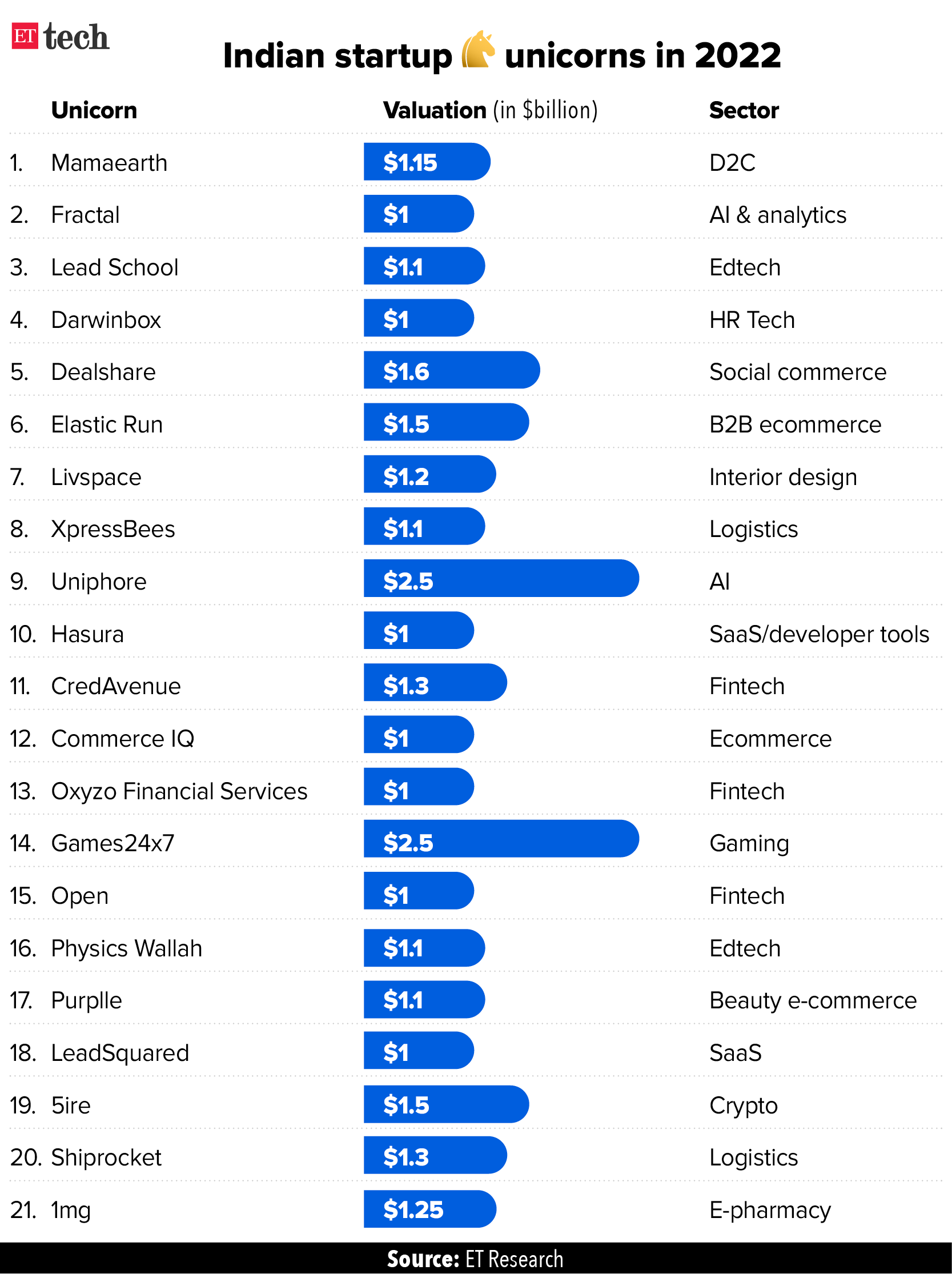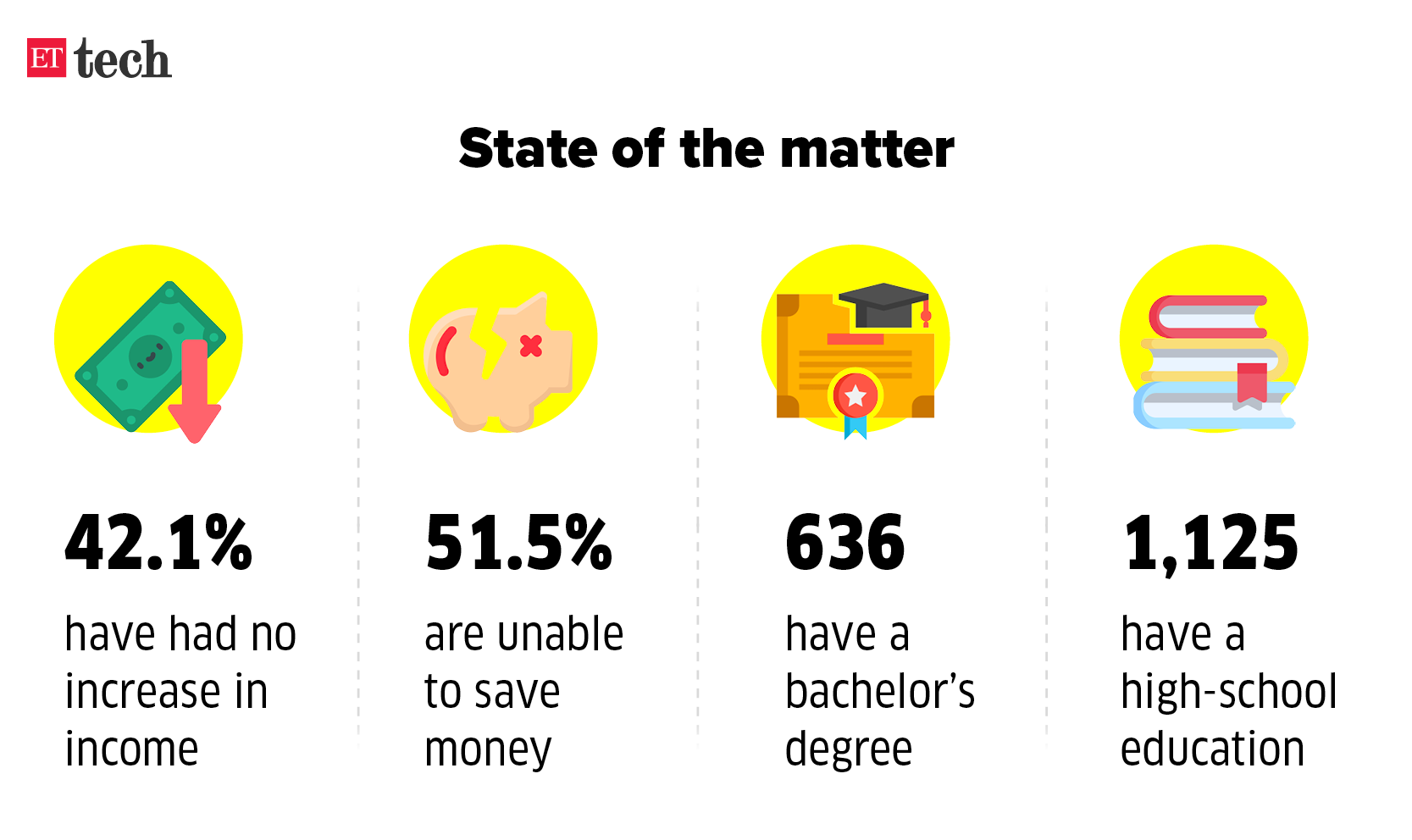Source: Tenor
Also in this letter:
■ Gig workers are young and financially stressed, suggests report
■ More than 2 billion user data stolen in TikTok’s hack
■ 90% comments on my Twitter profile are bots, says Musk
1mg enters unicorn club after $41-million funding from Tata Digital

Online pharmacy 1mg has entered the unicorn club after an internal round of $41-million funding led by Tata Digital, sources close to the development told us. Following the fund infusion, 1mg has been valued at $1.25 billion. Tata Digital had acquired 1mg at a valuation of around $450 million in June last year.
Quote Unquote: “The new financing has happened at a significant premium.. The discussions were to close at a higher valuation before the markets turned choppy. The company will look to raise a bigger round later this year or next year,” one of the people in the know told us.
While 1mg’s founder Prashant declines to respond, queries to Tata Digital did not elicit any response.

Competing with peers: The new funding comes at a time when 1mg rival PharmEasy is also looking to raise a new round after canceling its plans for an initial public offering. Reliance NSE 1.05 % -owned Netmeds is another rival for 1mg besides Apollo. We had reported last year saying pharmacies like 1mg and PharmEasy are experimenting with offline stores for an omni-channel play.
Joining the Tatas: Tata Digital, a wholly owned subsidiary of the Tata Group, acquired a majority stake (51-60%) in 1mg for a total deal size is in the range of $220-240 million last June. We had reported the deal size to be a mix of primary and secondary investment from the Tatas as well as some existing investors. Since then, the Gurugram-based company saw its revenue from operations more than double to Rs 627 crore in FY2022 compared to Rs 309 crore. Its losses also increased by close to 70% at Rs 526 crore.
The 1mg acquisition is the latest move by the salt-to-steel conglomerate to bulk up its digital portfolio, and build its super app play. ET had first reported about a possible Tata-1mg deal in November 2020.
Young, financially stressed and uninsured – The story of India’s gig workers

In a survey of over 4,000 gig workers from platforms such as Swiggy, Zomato, Uber, Ola, UrbanClap, and Amazon, it has been found that the workers in India are young, financially stressed, and largely uninsured.
The report, titled ‘Data ownership and well-being of gig workers’, was published by CIIE.CO – an incubator and accelerator at IIM-Ahmedabad – and sheds light on the growing plight of gig workers, who lack a social security net.
Go Deeper: According to the report, 42.1% of respondents reported not having an increase in income over time. In an inflationary environment, this means individuals are earning less each year. About 51.5% of individuals reported not being able to save money. Of the 3,926 individuals surveyed, 43.3% agreed that their work was a significant cause of stress and 20% cited economic stress as a leading contributor to their stress. One of the reasons why platform workers are likely unable to save routinely is the fact that they are vulnerable to wage volatility, the report said.

What’s more: “The lack of a collective voice, clubbed with an inability to compete in the market, leads to individuals continuing to work for platforms even when there are few avenues for financial growth. The other is the fact that a high number of individuals are the sole breadwinners of their family. What could have been disposable income normally is often remitted towards homes,” the report pointed out.

Solutions suggested: The authors of the report suggested a transition to tools of the future, including open-distributed ledgers (blockchains), big data, and data streams between entities. They have proposed a decentralised platform that holds holistic data about a gig worker.
Also read | Gig Interrupted: how Indian gig workers struggle amid lack of social security net
A MESSAGE FROM SOFTBANK
Digital heroes transforming the startup story and catalyzing new India’s techade

Powered by over 70,000 tech startups, India’s digital economy is potentially the biggest draw for common good in the decade ahead and expected to catalyze new India’s techade. Notwithstanding the cyclical boom and bust commentaries, it is evident that disruptive digital services and products by India’s new-age startups will power the country’s quest for a $5T economy.
And yet, as Indian founders come of age, they must switch to self-preservation mode too in the face of increasing macro pressures and a shift in the operating environment. To be sure, as startups brace for a tough funding winter, many are reframing their growth strategies, prioritizing sustainable long-term growth backed by sound corporate governance framework and strong unit economics over a growth-at-all-cost model.
At the ‘Global Unicorn Series’ hosted by SoftBank Group International India country head and CII Unicorn Forum chairman Manoj Kohli, the founders of some of the country’s leading startup champions share their survival instincts, growth ambitions, and lessons learnt in their extraordinary journeys.
From Zomato to Nykaa and Meesho to Shiprocket, the founders of India’s most disruptive startups decode their startup playbook for scaling sustainable, resilient businesses powering India’s digital economy. More here.
TikTok Hacked! Over 2 billion user data stolen
.jpg)
Cyber-security researchers on Tuesday discovered a potential data breach in Chinese short-form video app TikTok, allegedly involving up to 2 billion user database records.Several cyber-security analysts tweeted about the discovery of what was “a breach of an insecure server that allowed access to TikTok’s storage, which they believe contained personal user data”.
Tweeting the truth: “This is your forewarning. #TikTok has reportedly suffered a #data #breach, and if true there may be fallout from it in the coming days. We recommend you change your TikTok #password and enable Two-Factor Authentication, if you have not done so already,” tweeted BeeHive CyberSecurity.
TikTok denies: A TikTok spokesperson was quoted as saying in news reports that their security team “investigated this statement and determined that the code in question is completely unrelated to TikTok’s backend source code”.
Yes, but: Microsoft 365 Defender Research Team just discovered a vulnerability in the TikTok app for Android that can let hackers take over private, short-form videos of millions of users once they clicked on a malicious link.
Microsoft discovered a high-severity vulnerability in the TikTok Android application, which could have allowed attackers to compromise users’ accounts with a single click.
TWEET OF THE DAY
ETtech Done Deals

■ SoftBank plans $35 million bet on India’s GoMechanic: SoftBank Group is in talks to invest $35 million in Indian car service and repair startup GoMechanic, in what would be one of the Japanese investor’s smallest bets in India by its Vision Fund, which typically signs bigger cheques, two sources told Reuters. Vision Fund’s early-stage talks with GoMechanic are being held around a valuation of $600-700 million.
■ GroMo raises $11 million in funding from SIG Venture Capital: GroMo, a fintech platform for distribution of financial products in tier 2-and-beyond cities, has raised $11 million in equities from a clutch of investors led by SIG Venture Capital, the Asian venture capital arm of SIG, a global proprietary trading and private equity investment firm.
■ CashFlo raises $8.7 million in funding led by General Catalyst: Supply chain finance startup CashFlo has raised $8.7 million (Rs 70 crore) in funding as part of its second round of capital raise led by General Catalyst. Founded in 2018, CashFlo helps corporates and businesses automate their core finance processes and manage their cash flows better.
■ Suite42 bags $4.3 million in funding led by Omnivore, Orios: B2B food processing startup Suite42 has bagged $4.3 million in funding co-led by Omnivore and Orios Venture Partners, with participation from Titan Capital, All In Capital, Pointone Capital, and Udaan’s Sujeet Kumar. It plans to use the capital for talent acquisition, developing the ‘Suite42 Standard’ in the food processing ecosystem, among others.
As many as 90% of comments on my Twitter account are bots: Elon Musk

Tesla and SpaceX CEO Elon Musk on Tuesday again hit out at Twitter, saying 90 % of the comments on his tweets are actually bots or spam replies. Musk shared screenshots of replies by the fake Twitter account of Changpeng Zhao, founder and CEO of leading crypto exchange Binance.
Twitter’s bot problems: “And 90% of my comments are bots,” Musk said in a tweet. A follower asked Musk: “Do you think the number of likes you get has a similar proportion of bots vs humans at 90%?”
Brewing battle: Earlier this month, Musk went after Parag Agrawal-led microblogging platform after a top cybersecurity expert claimed that as high as eight in 10 Twitter accounts are fake. Dan Woods, global head of Intelligence at cybersecurity company F5, told The Australian that more than 80% of Twitter accounts are probably bots – a massive claim as Twitter says only 5% of its users are bots/spams. The Musk-Twitter trial is slated to begin on October 17.
Today’s ETtech Top 5 newsletter was curated by Gaurab Dasgupta in New Delhi and Judy Franko in Bengaluru. Graphics and illustrations by Rahul Awasthi.
























